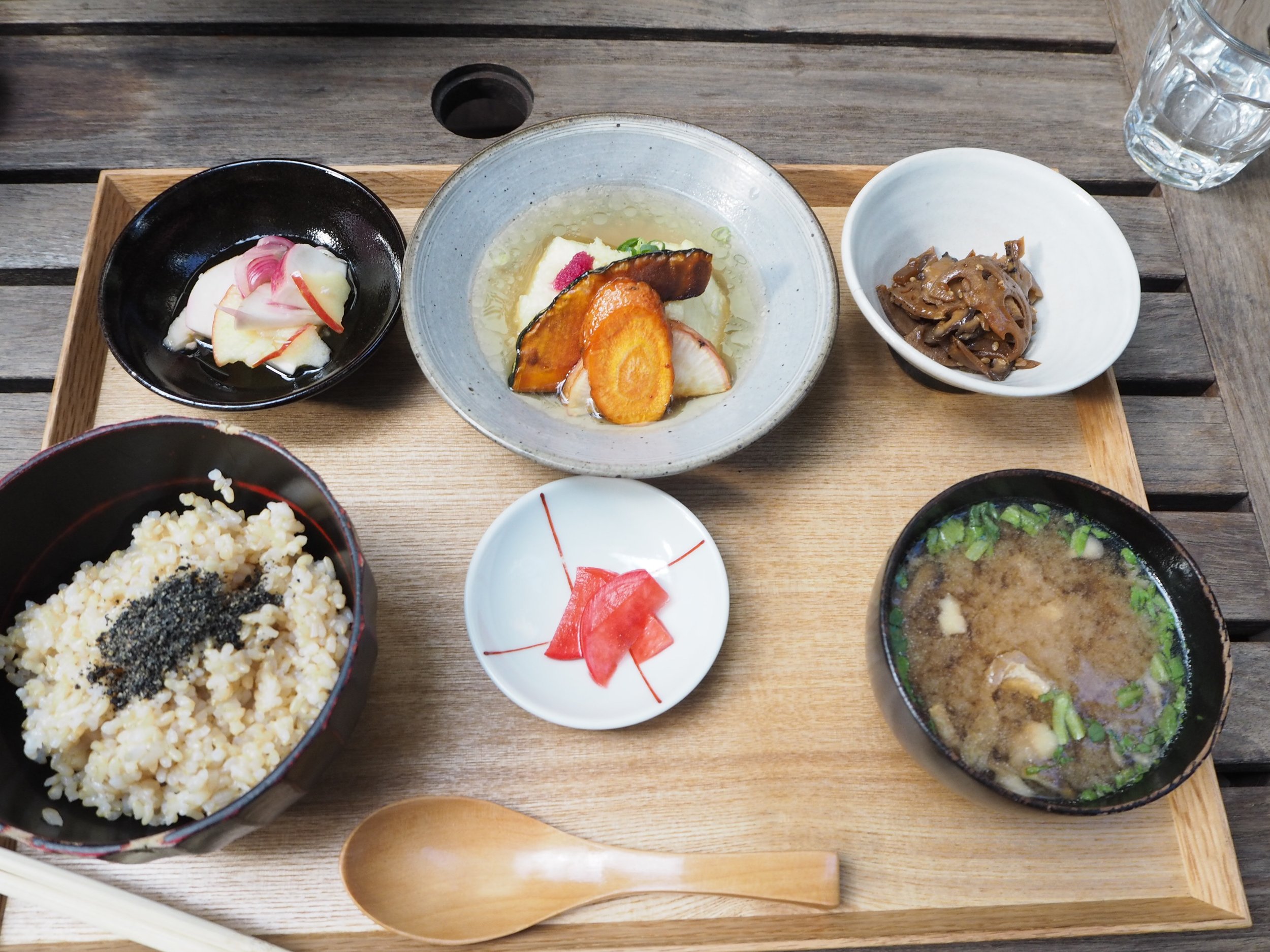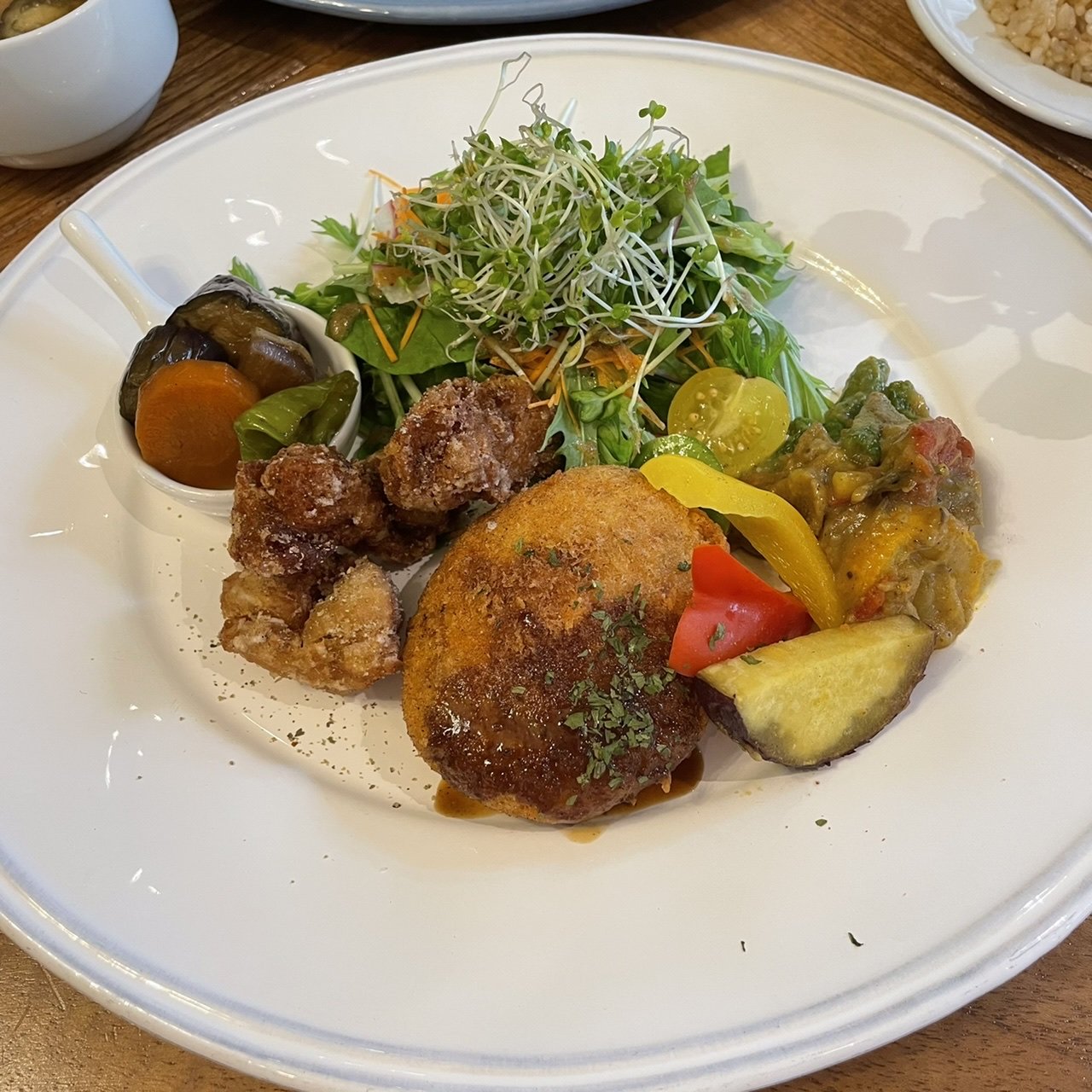Top 5 Tips for Vegan and Vegan-Friendly Restaurants in Japan
/Tokyo is not only the capital, but also the ‘vegan capital’ of Japan, with around 500-600 vegan-friendly restaurants in the city. New vegan products or limited-time plant-based dishes are often available only around Tokyo.
Unfortunately, vegans still do not feel welcomed at the most mainstream eateries, as it is almost impossible to find vegan options other than side dishes. Japanese restaurants often use fish stock as an ingredient in most dishes, even over tofu or vegetable dishes, and cafes generally use animal-based ingredients in their pasta sauces and salad dressings. In Japan, it’s even a challenge to find bread and sweets that do not contain eggs and dairy.
There is one type of food in Japan that is traditionally vegan: ‘shoujin ryouri’ meaning temple food. The food monks eat at temples is completely animal-free. At certain temples, tourists can stay overnight and enjoy shoujin ryouri too!
Photo: Revive Kitchen Three, Tokyo - ‘Modern Shojin lunch set’
Given the current situation, it is essential to create more educational opportunities to support vegan eating in the hospitality sector, so that restaurants can benefit from accommodating vegan guests, and so vegan guests will feel included when eating out. This is why I recently decided to receive training from Vegan Hospitality to become Japan’s first Vegan Hospitality Consultant! I’m thrilled to be on a mission to support the hospitality industry in its transition to vegan-friendly cuisine.
Below are my top secrets based on the success of vegan restaurants in Japan, many of which have been operating for 10+ years. These tips will not only keep vegan customers coming, but will also make the vegan dishes appeal to the larger market – even to burger loving modern Japanese customers.
1. Uniquely presented food, unique flavours and good atmosphere
There are several vegan restaurants in Tokyo that have been in business for over 10 years and still doing great. The secret is that they don’t just serve vegan dishes, they offer tasty and impressively good-looking food, have a nice atmosphere and great service – they are a great restaurant before being a vegan restaurant.
Plating and making food look good is extremely important in the Instagram era, but also providing unique tasting food that cannot be eaten at other places or easily cooked at home is also important as a differentiation strategy in a highly competitive restaurant sector as there is in Japan.
2. Marketing is the key in a highly competitive city!
If the food looks good, the customers will take care of half of the marketing work, by posting on social media the beautiful dishes they just ate! However, the restaurant needs to do its part too, by having an active online presence and communicating their brand to the customers, while keeping their feed updated with the latest news and new vegan dishes.
3. Being consistent and available matters!
Many vegan cafes in Japan are just impossible to visit, no matter how much I would want to, and the reason is their inconsistent opening times. As a customer, if you’re not careful to check the social media accounts and website, you may find yourself in front of a big ‘CLOSED’ sign even though you went out of your way to visit a new vegan place. This experience might leave a negative image of the café on the client, they might not come to visit again. Successful restaurants operate on a clear schedule, and are perceived as reliable and professional.
For the restaurants that have only a few vegan options, it is important to make sure they always have the options, and not be caught off guard when a vegan customer steps in and asks for them. Having a permanent vegan menu is key, and I’ve been trained as a consultant to collaborate with your chef to facilitate this process. Click here if you’re in Japan and would like to schedule a free consultation with me to get started!
4. Change is good and needed
Changing the entire menu of a restaurant at once may be a risk, since some customers return because they have a favourite dish, but keeping the same exact menu for years is not great either. Some eateries hardly change their menu, which can get a little boring if you’ve visited the place several times and already tried everything on the menu. For vegan guests, this is a major issue, since many mainstream restaurants only have one or two vegan options, and vegan guests do not have much of a choice but to get the same dish over and over if they would like to be a return customer. It’s important to adjust your menu according to new trends, and remember that customers’ preferences also change, so people prefer restaurants that make small adjustments to keep up with them.
5. It’s ok to detach from ‘all-healthy food’ concept
Many people in Japan go vegan or become interested in plant based food for health reasons. Therefore, a lot of vegan eateries tend to focus on providing food that is as healthy as possible, and sometimes fail at other aspects such as taste. They should know that it is alright if the café is not completely oil free, or if the desserts aren’t all sugar and gluten free. Customers mainly want to enjoy eating tasty food that they wouldn’t normally prepare at home, and vegan guests will mostly be happy to find a tasty vegan option. If you really want to keep the healthy concept, you can always offer replacement options, for example have gluten-free noodles as a choice, so the clients can decide for themselves. If you need help creating a menu to satisfy a variety of taste buds, you can contact me here.
Finally, the food culture in Japan is constantly changing and influenced by western trends, but the change is gradual. The vegan market is growing, but since it’s still a niche, vegan businesses need to focus on attracting non-vegan customers as well. To further help the expansion of vegan eating, the next step that is needed is education for hospitality businesses, so they understand the industry trends and importance to cater for this growing sector, and also get an idea on where to start from! My mission as Japan’s first Vegan Hospitality trained consultant is to support the hospitality industry in catering successfully to the growing population of vegan and vegan-curious guests, as we step into the future of food.
To work with Alina in Japan, or to find a consultant in your region, reach out to us for a free first consultation by completing this quick form, and we will respond within 24 hours to help you get started.
Article written by Alina Teodorescu of Vegan Omotenashi (Trained by Vegan Hospitality)
All photos provided by Alina Teodorescu







